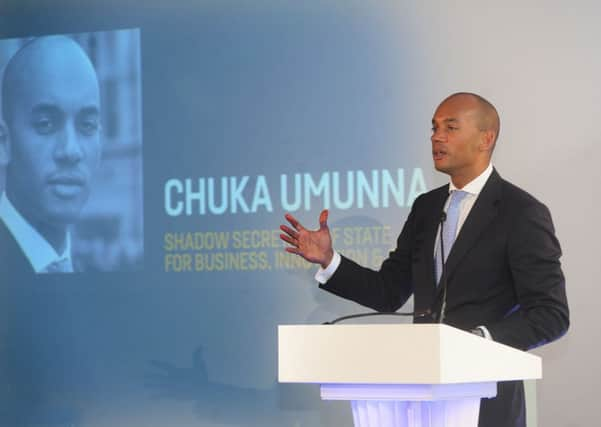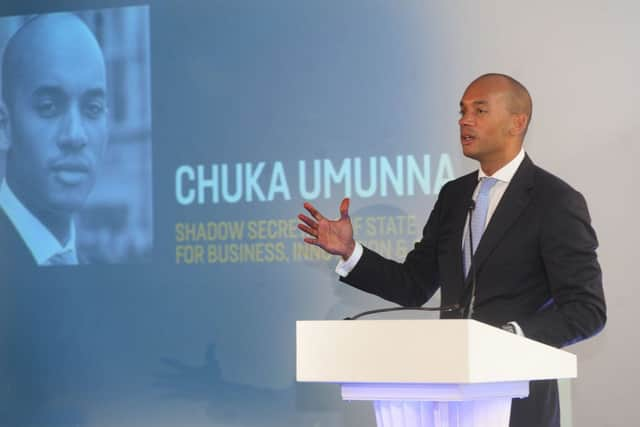Video: Sheffield’s Global Manufacturing Festival


Speaking at the Global Manufacturing Festival in Sheffield, the former City lawyer pledged that a Labour Government would continue with existing policy wherever possible and would introduce changes only where necessary.
Mr Umunna said politicians are too focused on tomorrow’s headlines and the next election and should instead follow the example of successful businesses like Jaguar Land Rover and have a genuine and credible commitment to the long term.
Advertisement
Hide AdAdvertisement
Hide AdBusiness Secretary Vince Cable, speaking at the GMF dinner on Tuesday evening, said that Britain has to start planning for the future if it is to remain competitive.


He acknowledged that his industrial strategy had taken inspiration from predecessor Lord Mandelson and Lord Heseltine and said he hoped that, if elected, a Labour Government would continue with successful policies.
Mr Umunna said there is a growing consensus in political and business circles about the need for an industrial strategy.
He said the financial crisis and subsequent recession exposed the weakness of having an unbalanced economy with too much emphasis on finance, consumption and house price inflation.
Advertisement
Hide AdAdvertisement
Hide Ad“We have got to transform and reconfigure our economy,” he said.
He added: “The goal is to align the horizons of policy makers not to five year election cycles, but to the much longer-term investment horizons of business.”
Mr Umunna was joined on stage at the AMRC Training Centre in Rotherham by Mike Wright, executive director of Jaguar Land Rover.
The company has been transformed under Indian ownership and last year saw sales rise to a record of nearly £20bn.
Advertisement
Hide AdAdvertisement
Hide AdMr Wright has produced a report for Labour on the capability of British SMEs to supply big companies like JLR and Nissan. It will be published tomorrow.
He told the audience: “The supply chain is absolutely critical to the success of the lead initiators and innovators in this sector.”
The report will call for Government to provide reassurance that it will create long-term stability to support investment in the advanced manufacturing sector. He will also urge ministers to check again that industrial strategy is still backing the right sectors.
He told the audience: “One of our customer strengths, particularly in Jaguar, is speed. People like to drive responsibly but fast. My challenge in the Wright report is going to be about speed.
Advertisement
Hide AdAdvertisement
Hide Ad“We have got the capability, we have got the resources, we have got the history, but we just need to move faster.”
The third annual Global Manufacturing Festival, organised by Sheffield Chamber, is the biggest yet with 100 exhibitors and an estimated 1,500 delegates.
Supporters include Siemens, Airbus, GE and HS2.
Matthew Chinn, managing director of Siemens Energy UK and Ireland, told the audience that offshore wind can help meet the world’s energy needs, but needs to get off subsidies.
Beth West, commercial director of HS2, said the high-speed rail link between London and the North and the Government’s new plans for an HS3 linking Leeds and Manchester “is all about creating better connectivity in order to allow businesses and people to travel more effectively around the North”.
Advertisement
Hide AdAdvertisement
Hide AdThe previous evening, 550 leading industrialists attended a dinner at Ponds Forge in Sheffield.
A panel debate hosted by the journalist Will Stirling covered issues of skills, energy costs, weak export performance and the need for a long-term industrial strategy, as well as the lack of women in manufacturing.
Jan Ward, chief executive of Corrotherm International, said: “What we should be saying is how do we attract more youngsters. It does not matter if they are men or women.”